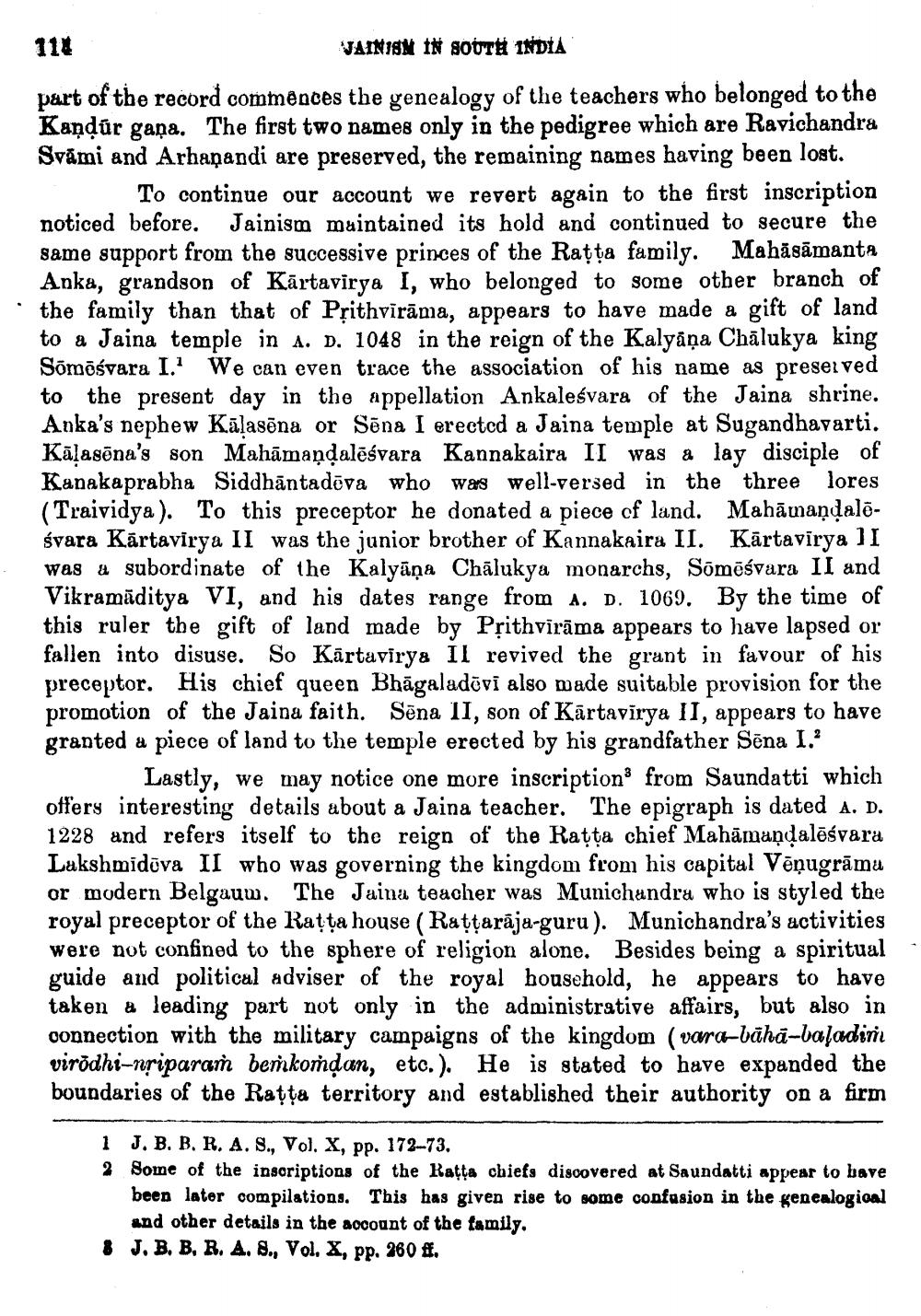________________
114
JAINISM IN SOUTH INDIA part of the record commences the genealogy of the teachers who belonged to the Kandür gaņa. The first two names only in the pedigree which are Ravichandra Svāmi and Arhanandi are preserved, the remaining names having been lost.
To continue our account we revert again to the first inscription noticed before. Jainism maintained its hold and continued to secure the same support from the successive princes of the Ratta family. Mahāsāmanta Anka, grandson of Kārtavirya I, who belonged to some other branch of the family than that of Prithvirāma, appears to have made a gift of land to a Jaina temple in A. D. 1048 in the reign of the Kalyāņa Chālukya king Somāśvara 1. We can even trace the association of his name as preserved to the present day in the appellation Ankaleśvara of the Jaina shrine. Anka's nephew Kālasõna or Sõna I erected a Jaina temple at Sugandhavarti. Kālasēna's son Mahāmaņdalēśvara Kannakaira II was a lay disciple of Kanakaprabha Siddhāntadova who was well-versed in the three lores (Traividya). To this preceptor he donated a piece of land. Mahāmaņdalēśvara Kārtavirya II was the junior brother of Kannakaira II. Kārtavirya 11 was a subordinate of the Kalyāņa Chālukya monarchs, Sõmēśvara II and Vikramāditya VI, and his dates range from A. D. 1069. By the time of this ruler the gift of land made by Prithvirāma appears to have lapsed or fallen into disuse. So Kārtaviry& Il revived the grant in favour of his preceptor. His chief queen Bhāgaladēvi also made suitable provision for the promotion of the Jaina faith. Sēna II, son of Kārtavīrya II, appears to have granted a piece of land to the temple erected by his grandfather Sēna I.'
Lastly, we may notice one more inscriptions from Saundatti which offers interesting details about a Jaina teacher. The epigraph is dated A. D. 1228 and refers itself to the reign of the Ratta chief Mahāmaņdalāśvara Lakshmidova II who was governing the kingdom from his capital Vēņugrāmu or modern Belgaum. The Jaina teacher was Munichundra who is styled the royal preceptor of the Ratta house (Rattarāja-guru). Munichandra's activities were not confined to the sphere of religion alone. Besides being a spiritual guide and political adviser of the royal household, he appears to have taken a leading part not only in the administrative affairs, but also in connection with the military campaigns of the kingdom (vara-bāhā-baladirii virodhi-nriparam berkodan, etc.). He is stated to have expanded the boundaries of the Ratta territory and established their authority on a firm
1 J. B. B. R. A.S., Vol. X, pp. 172-73. 2 Some of the inscriptions of the Ratta chiefs discovered at Saundatti appear to bave
been later compilations. This has given rise to some confusion in the genealogical
and other details in the account of the family, 8 J. B. B, B. A, 8., Vol, X, pp. 260 ff.




